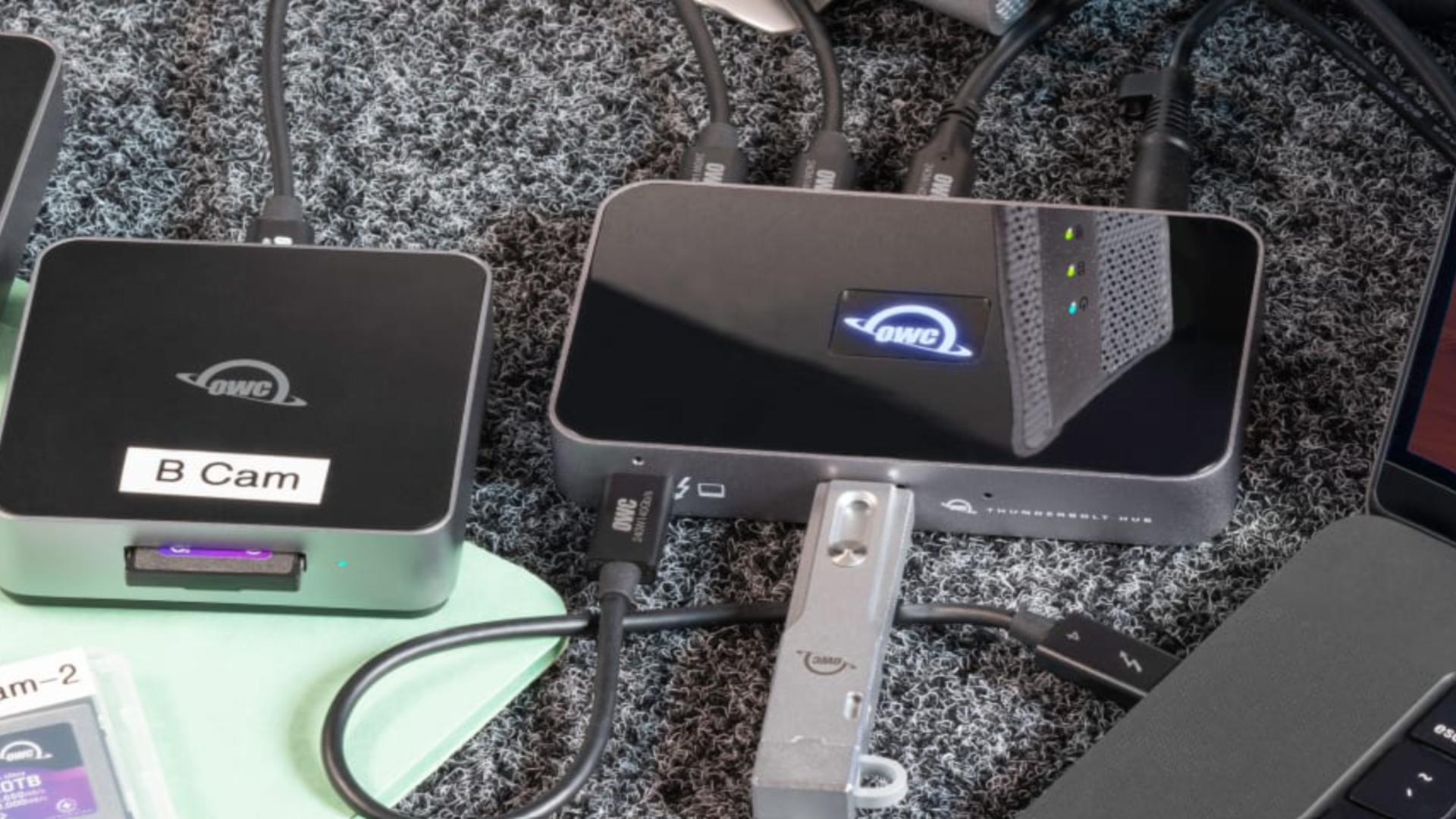
- OWC Express 4M2 enclosure offers an alternative route to large, fast external storage
- Thunderbolt 3 on Windows cripples performance to well below the advertised maximum speed
- OWC Express 4M2 SSD slots are PCIe 4.0 x1 only, so individual drive speeds are limited
In a market saturated with expensive high-capacity storage, the OWC Express 4M2 enclosure offers an alternative route to large, fast external storage without immediately breaching the $3000 mark.
At $239.99 for the base configuration, this device cheaper than the TerraMaster D4 SSD and offers a flexible foundation for building what could amount to a 32TB setup when paired with four 8TB NVMe drives.
The company promotes this device as capable of up to 3200MB/s throughput, but real-world performance is highly variable.
Maximum speed requires RAID and careful system configuration
The four M.2 NVMe slots support only PCIe 4.0 x1, which limits individual drive performance to about 1600MB/s.
Reaching peak speeds, therefore, requires RAID configurations and optimal conditions, factors that introduce complexity.
It provides support for RAID 0, 1, 4, 5, and 10, but again, achieving these benefits depends on software licensing, drive quality, and user knowledge.
Users might be drawn by the enclosure’s speed, but should be aware that performance gains require effort and understanding.
Compatibility with USB4 and Thunderbolt standards across macOS and Windows gives the enclosure broad appeal, although actual speed will be gated by the host device.
For example, systems running on older Thunderbolt 3 ports under Windows are capped well below full bandwidth.
While macOS users gain extra features such as booting from RAID arrays, this is limited to systems running at least macOS 11.3.
The Express 4M2 does deliver in terms of construction and thermal management.
Its aircraft-grade aluminum chassis is paired with a dual-fan system that activates only under high thermal load, which ensures quiet operation in most scenarios.
OWC’s inclusion of SoftRAID on some models introduces functionality typically reserved for more expensive storage systems.
For those trying to assemble a portable SSD setup or replace their external HDD with something faster, this enclosure makes economic sense, but only just.
However, the cost of filling all four bays with quality 8TB SSDs still pushes the total towards $3000, making this option practical only for those who can supply their own drives or already have SSDs on hand.













Leave a comment